
Who are the worst criminal assassins of all time, and whom did they murder? This Top 10 Criminal Assassins is one of our fans favorite Top 10 list so far!
- Gavrilo Princip – assassinated Archduke Franz Ferdinand of Austria, which triggered World War I
- Lee Harvey Oswald – assassinated President John F. Kennedy in 1963
- John Wilkes Booth – assassinated President Abraham Lincoln in 1865
- Marcus Junius Brutus – assassinated Julius Caesar in 44 BC
- Jack Ruby – assassinated Lee Harvey Oswald in 1963
- Yigal Amir – assassinated Israeli Prime Minister Yitzhak Rabin in 1995
- Nathuram Godse – assassinated Mahatma Gandhi in 1948
- Leon Czolgosz – assassinated President William McKinley in 1901
- Khalid Islambouli – assassinated Egyptian President Anwar Sadat in 1981
- Guiseppe Zangara – an Italian immigrant who attempted to assassinate President-elect Franklin D. Roosevelt in 1933 but instead killed Chicago Mayor Anton Cermak.
Let’s get into this week’s top 10 countdown of the worlds most famous criminal assassins:
10. Guiseppe Zangara
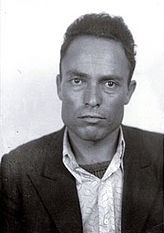
Giuseppe Zangara was a man who tried to shoot the President of the United States, Franklin D. Roosevelt, but missed and ended up killing the Mayor of Chicago. He was a small man with a big grudge and a short temper.
Here are ten interesting facts about Giuseppe Zangara:
- He was born in Italy in 1900 and immigrated to the United States in 1923.
- He worked as a bricklayer and then as a plasterer in Florida.
- He suffered from chronic stomach pains and believed that the government was responsible for his illness.
- He was an anarchist and hated politicians, especially those in power.
- He tried to kill Roosevelt because he believed the President was responsible for the Great Depression.
- He had a thick Italian accent and spoke very little English.
- He was arrested immediately after the shooting and was later sentenced to death.
- He claimed that he did not intend to kill anyone and that he was only trying to make a statement.
- He was executed in Florida’s electric chair on March 20, 1933.
- His last words were “Viva Italia! Goodbye to all poor peoples everywhere! Push the button!”
In conclusion, Giuseppe Zangara was a man who acted out of desperation and anger, with fatal consequences. His attempt on President Roosevelt’s life may have failed, but his actions demonstrated the dangers of radicalism and extremism.
9. Khalid Islambouli
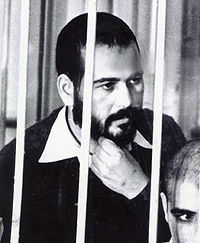
Khalid Islambouli was a former Egyptian army officer who orchestrated one of the most notorious political assassinations in history.
On October 6, 1981, he and his co-conspirators killed Egyptian President Anwar Sadat during a military parade in Cairo.
List of interesting facts:
- Khalid Islambouli was born on July 16, 1956, in Mansoura, Egypt.
- He came from a well-educated family and received a degree in engineering from Cairo University.
- Islambouli joined the Egyptian army in 1974 and later became a member of the elite unit responsible for presidential security.
- He became radicalized after the 1979 Camp David Accords, which he saw as a betrayal of the Palestinian cause.
- Islambouli joined the underground Islamist group Jamaat al-Islamiyya, which sought to overthrow the secular government of Egypt.
- He became the mastermind of the plot to assassinate President Anwar Sadat, whom he viewed as a traitor to Islam and a puppet of the United States.
- On the day of the attack, Islambouli and his accomplices disguised themselves as soldiers and infiltrated the parade ground. They then opened fire with automatic weapons and threw grenades, killing Sadat and 10 others.
- Islambouli was captured and subsequently executed by firing squad on April 15, 1982, along with four other conspirators.
- His brother, Abboud Islambouli, was also involved in the plot and received a life sentence.
- Islambouli’s actions were condemned by many in the Islamic world, including the Grand Mufti of Saudi Arabia, who called him a “criminal and a murderer.”
Despite his heinous act, Khalid Islambouli remains a complex figure whose story raises important questions about the role of religion in politics and the use of violence to achieve political ends. His actions may have changed the course of Egyptian history, but they also sparked a wave of Islamist terrorism that continues to this day.
8. Leon Czolgosz
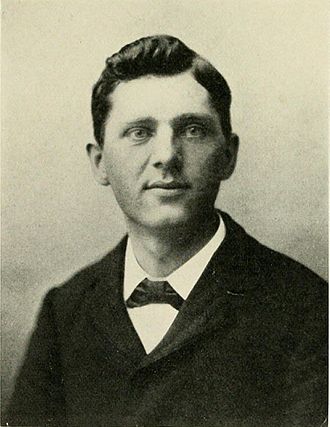
Leon Czolgosz was an American anarchist who assassinated President William McKinley.
He was a troubled man with a violent past, who carried out one of the most significant political crimes in American history.
10 Interesting Facts:
- Leon Czolgosz was born in Michigan in 1873, to Polish immigrants.
- He dropped out of school after the eighth grade and worked in a factory.
- Czolgosz became interested in anarchism after attending a lecture by Emma Goldman in Cleveland in 1898.
- He was arrested several times for his involvement in anarchist activities, including carrying a concealed weapon.
- Czolgosz made several attempts to meet with Goldman but was turned away each time.
- He became obsessed with the idea of killing a president, writing in his diary that “I must kill the President, as I would the devil.”
- On September 6, 1901, Czolgosz shot President McKinley twice while the President was greeting people at the Pan-American Exposition in Buffalo, New York.
- After his arrest, Czolgosz refused to speak to anyone except his jailers and his lawyer.
- He was convicted of murder and sentenced to death by electrocution.
- Czolgosz was executed on October 29, 1901, at Auburn Prison in New York.
Leon Czolgosz was a troubled man who was driven to commit a heinous act in the name of anarchism. His actions had a profound impact on American history and continue to be studied and analyzed by criminologists and historians today.
7. Nathuram Godse
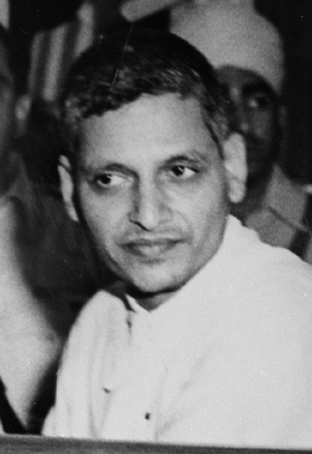
Nathuram Godse was an Indian political extremist who assassinated Mahatma Gandhi in 1948.
He believed that Gandhi’s non-violent approach to India’s independence was detrimental to the country’s future.
10 Interesting Facts About Nathuram Godse:
- Nathuram Godse was born on May 19, 1910, in Baramati, India.
- He was a member of the extremist Hindu nationalist group, the Rashtriya Swayamsevak Sangh (RSS).
- Godse was expelled from high school for participating in an anti-British protest.
- He was involved in several violent incidents, including throwing stones at British officials and attacking a group of Muslim traders.
- Godse was inspired by the works of the nationalist leader Vinayak Damodar Savarkar and believed in the creation of a Hindu Rashtra (nation).
- He was critical of Gandhi’s policies, including his stance on the partition of India and the payment of reparations to Pakistan.
- In 1946, Godse and his brother founded a newspaper called Hindu Rashtra, which advocated for the establishment of a Hindu state in India.
- Godse planned the assassination of Gandhi with the help of several accomplices, including his brother, Gopal Godse.
- On January 30, 1948, Godse shot Gandhi three times while he was on his way to a prayer meeting.
- After his arrest, Godse refused to plead for mercy and was sentenced to death by hanging.
Nathuram Godse’s actions shocked the world and left a lasting impact on Indian history. His extreme political views and violent actions continue to be condemned by many, while others consider him a hero.
Regardless of one’s opinion, there is no denying that Godse’s assassination of Mahatma Gandhi was a pivotal moment in India’s struggle for independence and its ongoing efforts to promote non-violence and tolerance.
6. Yigal Amir
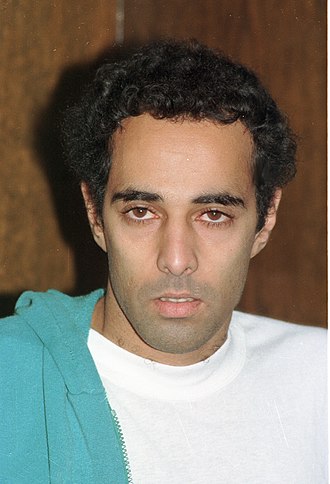
Yigal Amir is an Israeli assassin who gained notoriety for assassinating Israeli Prime Minister Yitzhak Rabin in 1995, an act that shocked the world.
While some viewed him as a martyr for his political beliefs, others condemned his actions as senseless violence.
List of Interesting Facts about Yigal:
- He was born on May 23, 1970, in Herzliya, Israel.
- Yigal grew up in a religious, right-wing family.
- Yigal Amir studied law and became an expert in Jewish law.
- He became politically active in the 1990s, joining far-right Jewish groups that opposed the Oslo Accords.
- Yigal was convinced that Rabin’s peace agreement with Palestine would bring disaster to Israel.
- He joined a fringe organization called Eyal, which advocated for the use of violence to stop the peace process.
- Yigal Amir assassinated Prime Minister Yitzhak Rabin at a peace rally on November 4, 1995, in Tel Aviv.
- He caimed that he acted alone, but conspiracy theories abound.
- Yigal was sentenced to life in prison with no possibility of parole.
- He is still considered a controversial figure in Israel, with some people viewing him as a hero and others as a traitor.
Yigal Amir’s life and actions remain a topic of debate and controversy in Israel and around the world. His assassination of Prime Minister Rabin changed the course of Israeli history and had far-reaching consequences.
Whether viewed as a hero or a villain, his story is a reminder of the power of ideology and the dangers of extremism.
5. Jack Ruby
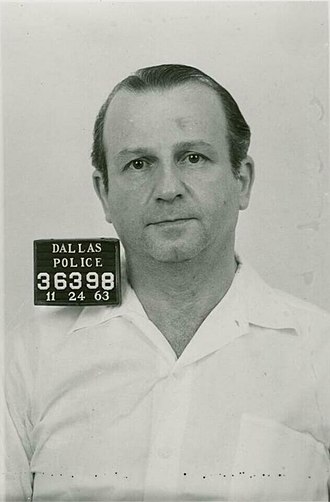
Jack Ruby was a nightclub owner who became infamous for killing Lee Harvey Oswald, the man accused of assassinating President John F. Kennedy.
Ruby’s motives for the shooting remain unclear to this day, and his life is shrouded in mystery and speculation.
List of 10 Interesting Facts about Jack Ruby:
- Ruby was born Jacob Leon Rubenstein in Chicago in 1911, to Polish immigrant parents.
- He changed his name to “Jack Ruby” in the 1930s, possibly to avoid anti-Semitic discrimination.
- Ruby had a long history of involvement in organized crime, including bootlegging and gambling.
- He ran several nightclubs in Dallas, including the Carousel Club, which featured burlesque shows and was known to be a hangout for local mobsters.
- Ruby was present at Dealey Plaza on the day of Kennedy’s assassination, but his exact movements before and after the shooting are unclear.
- Two days later, Ruby shot Oswald in the basement of the Dallas police station while he was being transferred to a county jail.
- Ruby claimed that he acted alone and that he was motivated by a desire to spare Jackie Kennedy the pain of a trial, but many people believe he was part of a larger conspiracy.
- Ruby was convicted of murder and sentenced to death, but the conviction was overturned on appeal due to jury selection issues. He died in prison before a new trial could take place.
- Ruby suffered from health problems and was treated for cancer during his time in prison.
- The mystery surrounding Ruby’s motives and his possible connections to the Kennedy assassination have inspired countless books, films, and conspiracy theories.
Jack Ruby’s life was a classic example of the dark side of the American dream. He was a small-time hustler who yearned for fame and fortune, but in the end, he became a symbol of something much darker and more sinister. Whether he acted alone or as part of a larger conspiracy, his actions on that fateful day in Dallas will forever be remembered as one of the defining moments of 20th century American history.
4. Marcus Junius Brutus
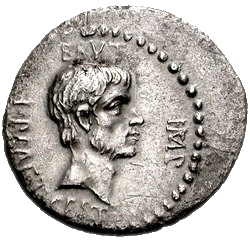
Marcus Junius Brutus was a Roman politician and philosopher who is best known for his role in the assassination of Julius Caesar.
His life story is a captivating one, full of drama, betrayal, and political intrigue.
Interesting Facts about Marcus:
- Brutus was born in 85 BC to a well-respected Roman family.
- He was tutored by some of the greatest philosophers of his time, including the famous Stoic philosopher, Marcus Porcius Cato.
- Brutus was a military commander who served under Julius Caesar during the Gallic Wars.
- Despite being an ally of Caesar, Brutus became convinced that Caesar was becoming too powerful and that his rule was a threat to the Roman Republic.
- Along with a group of senators, Brutus plotted to assassinate Caesar in 44 BC.
- The assassination was carried out on the Ides of March, and Brutus was one of the chief conspirators.
- Following the assassination, Brutus and his fellow conspirators fled the city, but they were eventually defeated in a series of battles by Mark Antony and Octavian (Caesar’s adopted son and heir).
- Brutus and his co-conspirator, Cassius, committed suicide rather than be captured by the forces of Antony and Octavian.
- Despite his role in the assassination, Brutus was widely regarded as an honorable man, and his actions were seen by many as a noble attempt to preserve the Roman Republic.
- Brutus has been immortalized in literature, including in William Shakespeare’s play “Julius Caesar”, in which he is portrayed as a tragic hero who is torn between his loyalty to the Republic and his friendship with Caesar.
Brutus is a figure who has captured the imagination of people throughout the centuries, thanks to his role in one of the most famous assassinations in history. His legacy is one of conflicting loyalties, political ideals, and ultimately, tragic consequences.
Despite being remembered by history as an assassin, Brutus remains a fascinating and complex figure who continues to be studied and debated by scholars and enthusiasts alike.
3. John Wilkes Booth
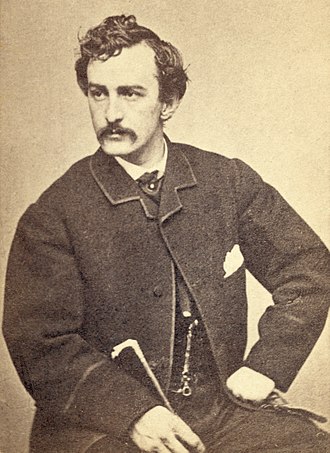
John Wilkes Booth was an actor and Confederate sympathizer who is best known for assassinating President Abraham Lincoln.
Booth’s act of violence sent shockwaves through the nation and forever cemented his name in American history.
10 Interesting Facts about John Wilkes Booth:
- Booth was born in Maryland in 1838, the ninth of ten children.
- He came from a prominent family of actors and theater managers.
- Booth began his acting career at a young age and quickly became a popular performer.
- Despite his success on the stage, Booth was a staunch supporter of the Confederacy during the Civil War.
- In 1864, Booth hatched a plot to kidnap President Lincoln and hold him for ransom in exchange for Confederate prisoners of war.
- When the kidnapping plot fell through, Booth decided to assassinate Lincoln instead.
- On April 14, 1865, Booth shot Lincoln in the back of the head at Ford’s Theatre in Washington, D.C.
- Booth fled the scene and went into hiding, eventually being tracked down by Union soldiers 12 days later.
- Booth was shot and killed by a Union soldier while hiding in a barn in Virginia.
- Booth’s co-conspirators were later tried and convicted for their involvement in the assassination plot.
John Wilkes Booth was a complicated figure, known both for his talent on the stage and his violent actions off of it.
His assassination of President Lincoln forever changed the course of American history and ensured that Booth’s name would be remembered for generations to come.
2. Lee Harvey Oswald
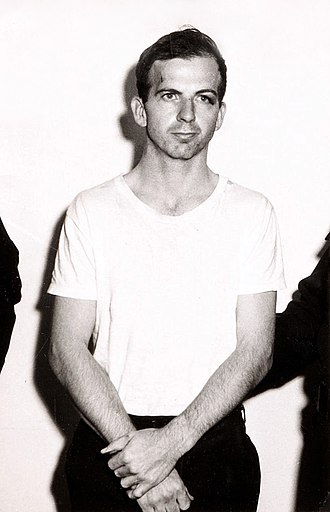
Lee Harvey Oswald, the assassin of President John F. Kennedy, was a controversial and enigmatic figure.
Born in New Orleans in 1939, he grew up in a broken home, joined the Marines, defected to the Soviet Union, and then returned to the U.S. with a Russian wife.
His strange and erratic behavior before and after the assassination has spawned numerous conspiracy theories.
List of interesting facts about Oswald:
- Oswald was a self-proclaimed Marxist and admirer of Fidel Castro.
- He was dishonorably discharged from the Marines after attempting suicide.
- While living in the Soviet Union, Oswald was monitored by the KGB but never recruited as a spy.
- He attempted to renounce his U.S. citizenship and become a Soviet citizen, but was rebuffed.
- Oswald owned a rifle similar to the one used in the assassination, which he purchased through mail order.
- He worked in the Texas School Book Depository, from where he allegedly fired the fatal shots.
- After the assassination, Oswald was arrested for killing a police officer and later died in custody.
- The Warren Commission, appointed to investigate the assassination, concluded that Oswald acted alone.
- Many people, including JFK’s own brother Robert, have questioned the Commission’s findings.
- Oswald’s motive for killing Kennedy remains a mystery, but some speculate that he was a patsy or a pawn in a larger conspiracy.
Lee Harvey Oswald’s life and death are shrouded in mystery and controversy. Whether he acted alone or was part of a larger conspiracy, his actions on November 22, 1963, changed the course of American history.
Despite the many investigations, theories, and debates that have ensued, the full truth about his role in the assassination may never be known.
1. Gavrilo Princip
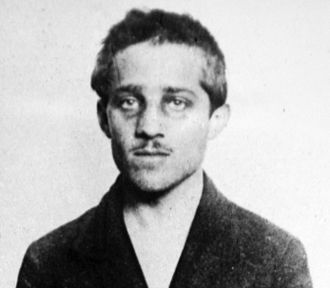
Gavrilo Princip was a young Bosnian Serb with a deadly aim and a burning desire for independence. Born in 1894, Princip came of age in a region roiled by ethnic tensions and political unrest.
When he was just 19, he joined a secret nationalist organization called “Young Bosnia” and quickly became one of its most fervent members.
But it was on a sunny day in June 1914 that Princip became a household name. He was part of a group of assassins that lay in wait for Archduke Franz Ferdinand, the heir to the Austro-Hungarian Empire, as he traveled through the streets of Sarajevo.
When the Archduke’s car approached, Princip stepped forward and fired two shots, killing both the Archduke and his wife.
Here are ten interesting facts about Gavrilo Princip that you might not know:
- Princip was not the first assassin to take a shot at the Archduke that day. Several others had tried and failed before Princip finally succeeded.
- Princip was very thin and sickly-looking, with sunken cheeks and a pallid complexion.
- When he was captured after the assassination, Princip was beaten and tortured by his captors.
- Princip’s assassination of the Archduke set off a chain of events that led to the outbreak of World War I.
- Although Princip’s assassination is often portrayed as a heroic act of patriotism, it was in fact a brutal and senseless act of violence.
- Princip was sentenced to 20 years in prison for his role in the assassination.
- Princip died in prison in 1918, just a few months before the end of the war.
- Some Bosnian Serbs still regard Princip as a hero and a martyr for their cause.
- The gun that Princip used to assassinate the Archduke is now on display in a museum in Vienna.
- Princip’s assassination was not the first attempt on the Archduke’s life – another attempt had been made earlier that day with a bomb.
Despite his youth and his sickly appearance, Gavrilo Princip was a man of conviction and courage.
His assassination of Archduke Franz Ferdinand set off a chain of events that changed the course of world history.
Though he died young and in prison, he left behind a legacy that still resonates today.
Read more of our Top 10 countdowns here.
